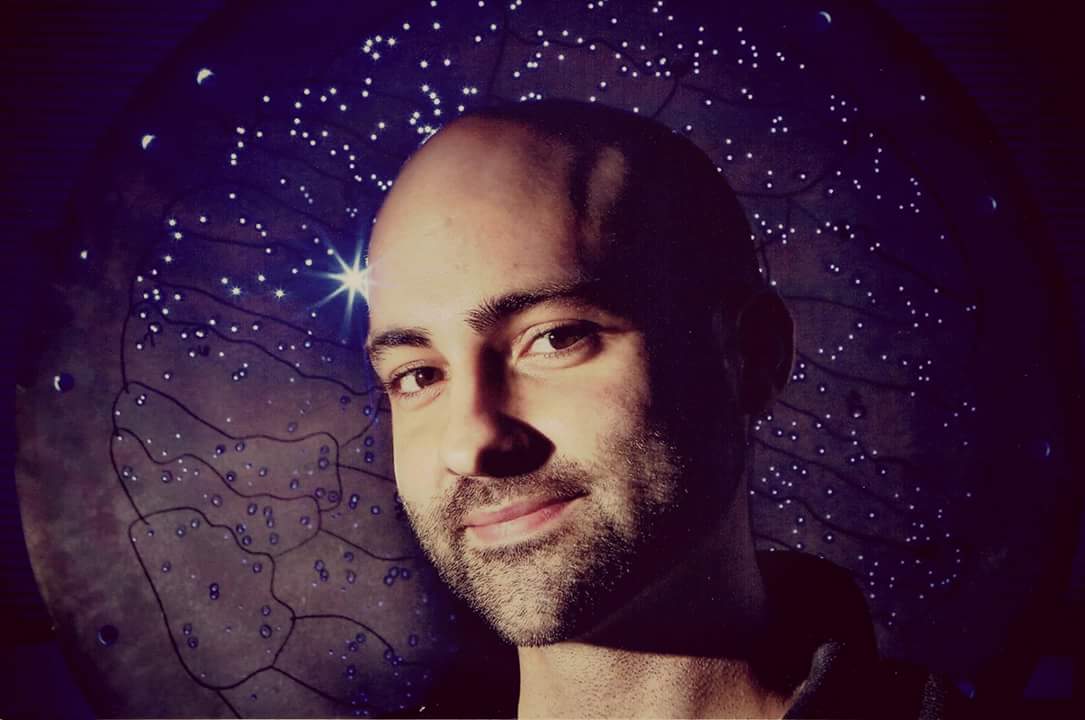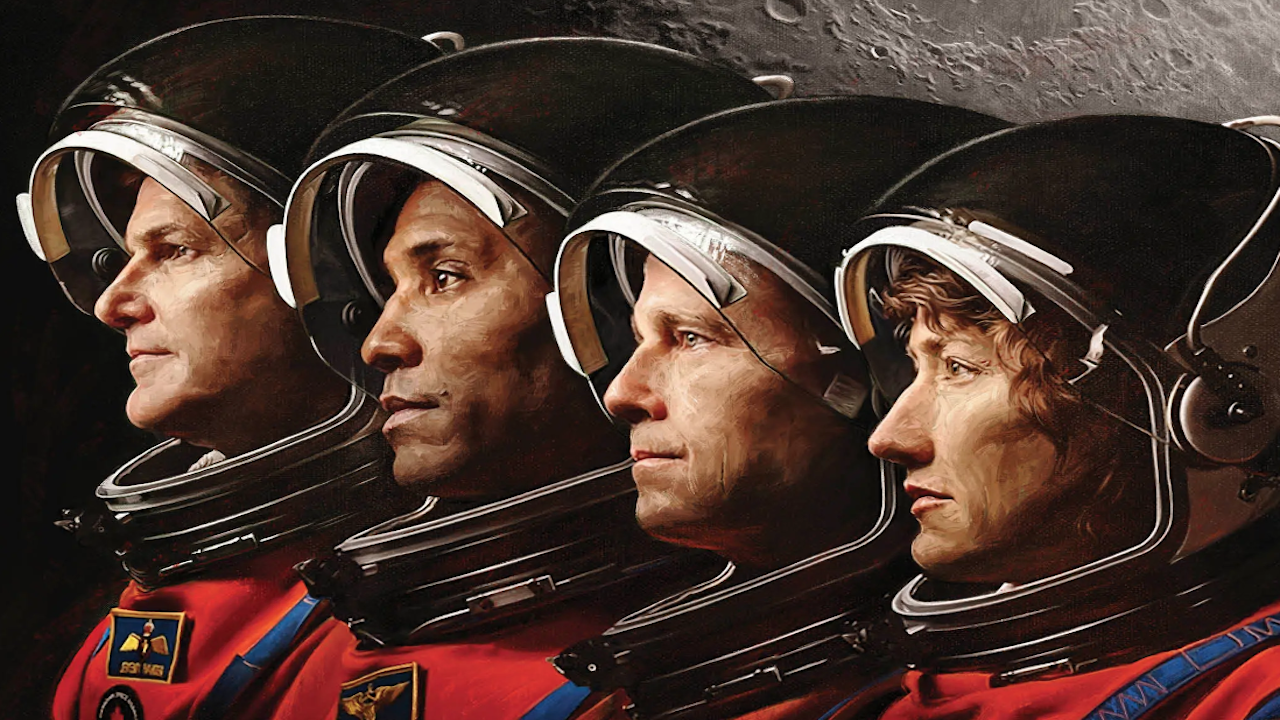Paul M. Sutter is a cosmologist at Johns Hopkins University. A prolific scientist, he has written over 60 academic publications on topics such as the earliest moments of the big bang and the largest objects in the universe. Paul is also an award-winning science communicator. He has authored three critically acclaimed, international bestselling books and has hosted television shows on Discovery, Science Channel, History Channel, and numerous digital outlets. You can find his essays in The New York Times, Scientific American, Nautilus, and more. In addition to regular appearances on NBC News, BBC News, CNN, and The Weather Channel, Paul has developed one of the most popular podcasts in the world and is a globally recognized leader in the intersection of art and science, especially in his role as a United States Cultural Ambassador.
Latest articles by Paul Sutter
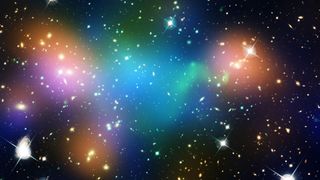
Dark matter atoms may form shadowy galaxies with rapid star formation
By Paul Sutter published
Dark matter, the invisible material that makes up the vast majority of the universe's mass, may collect itself to form atoms, a new simulation shows.
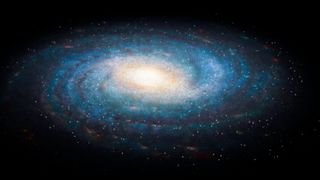
New Milky Way map reveals the magnificent messiness of our galaxy
By Paul Sutter published
Astronomers have used the youngest objects in the Milky Way to build a new map of the galaxy's spiral arms, and the results are far messier than expected.
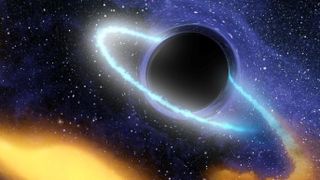
Strange star system may hold first evidence of an ultra-rare 'dark matter star'
By Paul Sutter published
In a distant star system, a sunlike star orbits an invisible object that may be the first example of a 'boson star' made of dark matter, new research suggests.
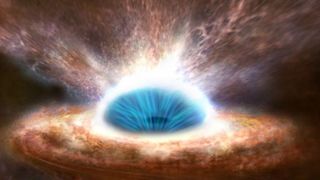
Some black holes may actually be tangles in the fabric of space-time, new research suggests
By Paul Sutter published
A new paper discusses how light interacts with theoretical objects called "topological solitons" — kinks in the fabric of space-time that look just like black holes.

'Hycean' exoplanets may not be able to support life after all
By Paul Sutter published
New research suggests that Hycean exoplanets would suffer from a catastrophic runaway greenhouse effect, causing their oceans to boil away.
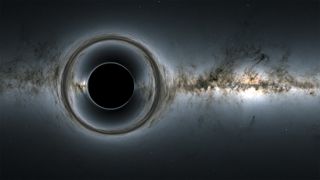
Tiny primordial black holes could have created their own Big Bang
By Paul Sutter published
A large population of small black holes could have flooded the young cosmos with particles and radiation, creating their own black hole-powered Big Bang, physicists propose in a new paper.

Cosmic rays pose dangers to frequent flyers. This radiation detector could help.
By Paul Sutter published
These cosmic rays typically come from the extremely distant universe, from ultrapowerful events such as supernovas and quasars.
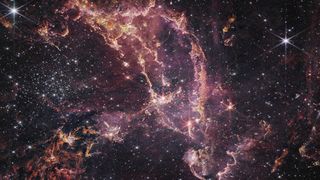
'Dragon cloud' holds clues about how the biggest stars in the galaxy are born
By Paul Sutter published
A massive, cold clump of material in the heart of the "Dragon cloud" is ready to form a single giant star, and astronomers got a rare glimpse of the event.
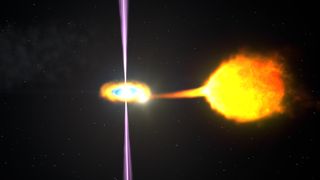
New kind of pulsar may explain how mysterious 'black widow' systems evolve
By Paul Sutter published
Astronomers have identified a new kind of pulsar that consumes an orbiting companion, filling in a missing link about how some of the strangest systems in the universe evolve.
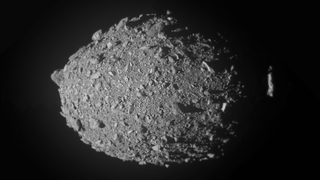
NASA's asteroid-smashing DART mission revealed how battered space rock Dimorphos formed
By Paul Sutter published
Observations by NASA's DART spacecraft suggest that the asteroid Dimorphos formed from material flung into space by its spinning asteroid partner, Didymos.
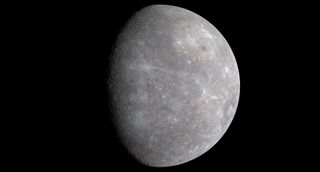
Why is Mercury so weird? Blame the giant outer planets.
By Paul Sutter published
Mercury is so strange that astronomers have not been able to explain its properties with simulations of the solar system's formation. But now, researchers have found an important clue.
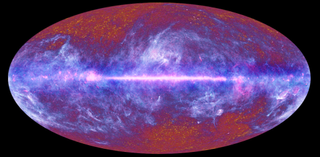
The universe might be shaped like a doughnut, not like a pancake, new research suggests
By Paul Sutter published
The universe may be flat, but could still be shaped like a doughnut, weird patterns in leftover light from the Big Bang suggest.
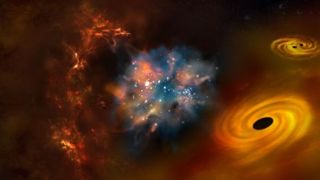
The early universe was crammed with stars 10,000 times the size of our sun, new study suggests
By Paul Sutter published
When the universe's first stars emerged from the cosmic dark ages, they ballooned to 10,000 times the mass of Earth's sun, new research suggests.

What are Newton's laws of motion?
By Paul Sutter last updated
Reference Newton's Laws of Motion is one of the reasons that Sir Isaac Newton is often considered the No. 1 scientist of all time.
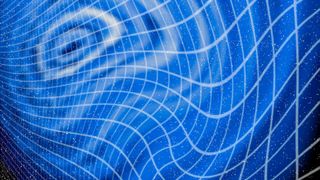
Faint gravitational waves may be from primordial fractures in space-time
By Paul Sutter published
The early universe may have been such a violent place that space-time itself fractured like a pane of glass, releasing gravitational waves that astronomers say we may have already detected.

Dark energy could lead to a second (and third, and fourth) Big Bang, new research suggests
By Paul Sutter published
Scientists have proposed a way that the universe could stop expanding, ending in a 'Big Crunch' that resets space and time as we know it.
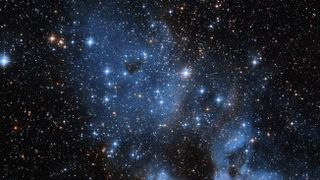
Blue stragglers are the weird grandparents of the galaxy
By Paul Sutter published
Finding and studying these strange stars helps us understand the complicated life cycles of normal, more well-behaved stars.

Do we live in a rotating universe? If we did, we could travel back in time
By Paul Sutter published
A rotating universe would be capable of rotating your future into your own past, allowing you to travel back in time.
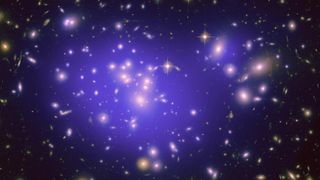
The universe is slightly hotter than it should be. 'Dark photons' could be to blame.
By Paul Sutter published
Intergalactic gas clouds are slightly hotter than they should be, new research claims, and theoretical particles called 'dark photons' could explain it.
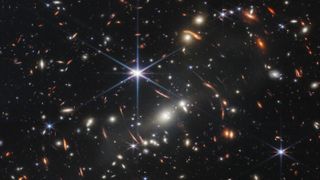
No, the Big Bang theory is not 'broken.' Here's how we know.
By Paul Sutter published
Researchers confirmed that the distant galaxies discovered by the James Webb Space Telescope are, indeed, perfectly compatible with our modern understanding of cosmology.
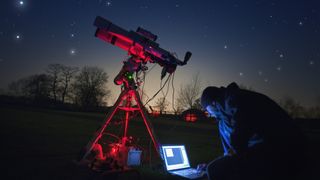
Almost anyone can become an amateur astronomer. What will you find?
By Paul Sutter published
Want to become a published astronomer? All it takes is a spare telescope, or at least a decent internet connection, and plenty of patience.

Does consciousness explain quantum mechanics?
By Paul Sutter published
A wild theory suggests that consciousness may explain quantum mechanics, by forcing the subatomic particles to choose one concrete outcome.
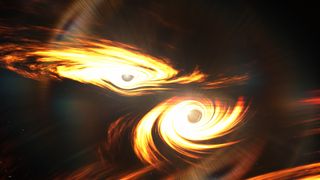
How gravitational waves can 'see inside' black holes
By Paul Sutter published
What lurks at the center of a black hole? Studying the space-time ripples from black hole collisions could reveal an answer.
Breaking space news, the latest updates on rocket launches, skywatching events and more!
